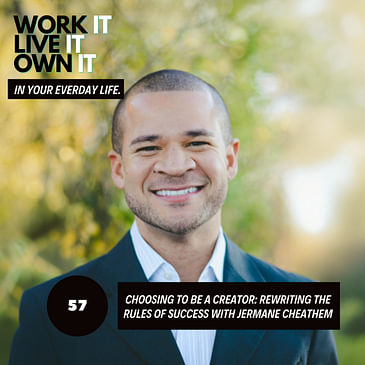Summary
Jermaine Cheathem shares his story of resilience, strategic thinking, and the power of choosing to be a creator rather than a victim in both life and business. He discusses how his early challenges shaped his approach to building a successful life and business. Jermaine also talks about his transition from being an employee to an entrepreneur and how it redefined his definition of success and fulfillment. He provides advice on building effective partnerships and achieving business success and personal fulfillment. Jermaine emphasizes the importance of self-mastery, focusing on high-leverage activities, and finding strategic alliances.
Takeaways
- Success is about rewriting the rules and challenging the status quo.
- Every setback is an opportunity for growth and self-mastery.
- Building effective partnerships involves clarity on what you sell, who you sell to, and finding strategic alliances with those who have a network of your ideal clients.
- To achieve business success and personal fulfillment, focus on self-mastery, high-leverage activities, and finding the balance between work and personal life.
- Simplify your daily routine by dividing your day into morning, dedicated work blocks, and personal time.
Sound Bites
"Jermaine is a trailblazer who turned adversity into opportunity"
"The ultimate freedom is always mental freedom"
"You're slowly tiptoeing to death"
Chapters
00:00 Jermaine Cheatham's Story of Resilience
04:43 Transitioning from Employee to Entrepreneur
11:37 Building Effective Partnerships
21:22 Simplifying Your Routine: The Power of Self-Mastery and High-Leverage Activities
Ready to join the WLO community to receive exclusive updates? Click the link: https://workitliveitownit.com/
Follow SaCola on Instagram: https://instagram.com/workitliveitownit
Subscribe to Work it, Live it, Own it! On YouTube: https://bit.ly/2lxB1TS
Email for business inquiries: info@workitliveitownit.com





